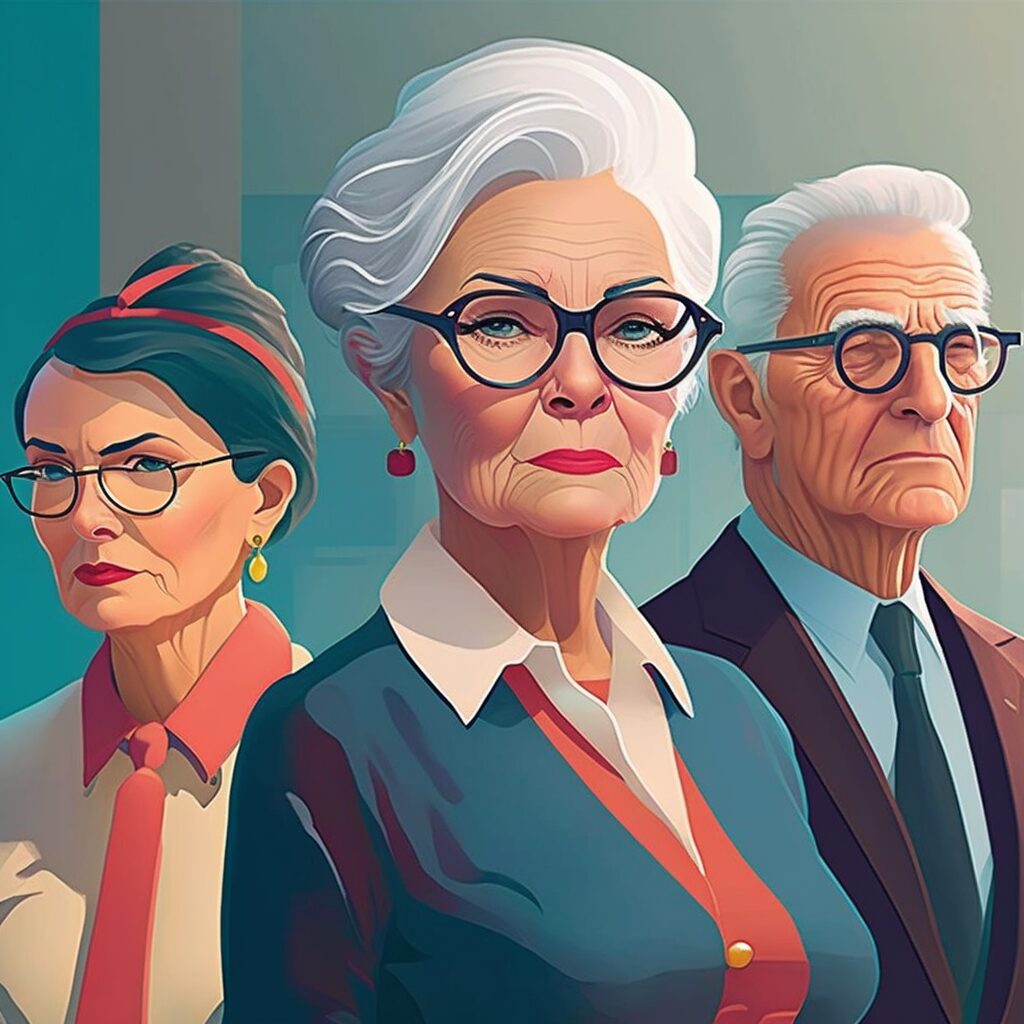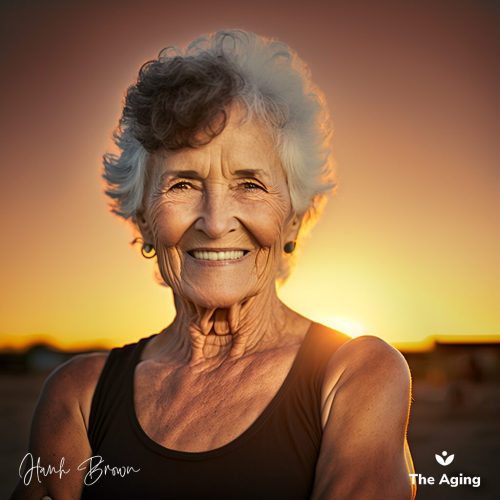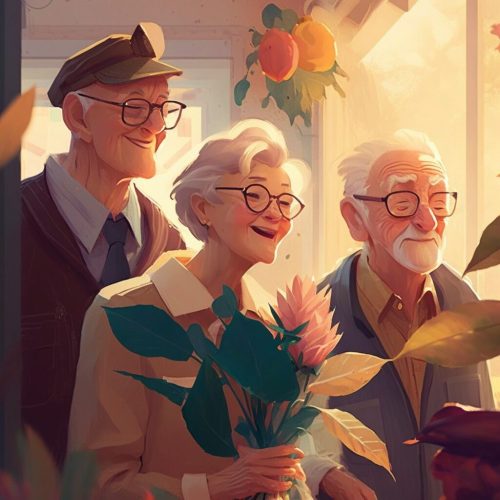Hanh:
0:00
Hi, I'm Hanh Brown,and thank you for tuning in.Today, we're going to talk about is love stronger than Alzheimer's?Alzheimer's disease is a progressive and incurable neuro degenerative disorder that affects cognition, including memory lost.Alzheimer's disease is hard and family members and marriages, and also people living with Alzheimer's often experience confusion, mood swings, hallucinations,which can lead them to dangerous situations if not properly cared for.So when you love someone with Alzheimer's,the disease can drop you of your relationship.It also affects everyone else in the family.The children, siblings and grandchildren who are left behind to care for their loved one.So what do you do when your spouse is diagnosed with this disease that progressively affects the brain and limits one's ability to remember think,communicate or take care of themselves?Is it possible to maintain a loving marriage when your spouse has Alzheimer's?Well, if so, how do you make this happen?So joining me today is Mary Daniel.Mary Daniel is a board certified patient advocate and the founder of Claim Medic and the Daniel Advocacy Group.She's been a resident at Rose Castle Memory Care Center since July, 2019 with her husband, Steve, who was diagnosed with Alzheimer's disease in 2013 at the age of 59.So in July of 2020, Mary gained national attention.After taking a job as a dishwasher at the Rose Castle Memory Care, so that she could spend time with her husband,Steve, after being separated for about114 days during the COVID shutdown.So Mary, welcome to the show.
Mary:
2:00
Thank you so much, I'm so happy to be here.
Hanh:
2:02
Thank you.You have a very interesting story about working as a dishwasher to care for your husband who had dementia.So please share with us. How did that story go?
Mary:
2:14
Well, I placed him as you mentioned at Rose Castle Memory Care Center in July of 2019, I have been keeping him at home.It had been a challenge was becoming more and more of a challenge.Steve has always been very social.He was a salesman by trade.And the reason he was a good salesman for his entire career is a loved relationships with people building relationships.So I kept him at home believing that this was the right place for him,that I could care for him better.And everyone, and it took a long time for me to come to terms with the fact that maybe that wasn't true, he needed socialization and he needed to be with other people instead of being here in the house all day, every day, watching television,which was basically what he was doing.So I placed him in memory care and he thrived.He loved it.They gave him a seat at the front desk.They call him the mayor of Rose Castle,because he would greet everyone no matter who they were walking in the door, the UPS, theUPS guy, the medical professionals,other family members, he thrived.But when the lockdown came,that put an end to that.I went to see him every night.We were together every evening.We watched television every night, and I left as he was drifting off to sleep.It was a wonderful arrangement.It worked very, very well for us.And I got to really concentrate on being his wife, not being his caregiver.That was a very big distinction that had a true effect on our marriage.But when that lockdown came, I couldn't get to him any longer.And I started getting inpatient.And started reaching out to as many people as I could, the media trying to reach the governor of Florida.I just felt like he needed to hear what I had to say.And that was basically that there had to be another way that I was losing Steve very quickly through a window and I needed to get back to him so that he could actually feel my love for him.
Hanh:
4:14
Bless you.Wow.So, so what was the union like that your husband recognize you described the moment?
Mary:
4:21
That was my biggest fear.I'm the reason I was fighting so hard as I did feel that there was an urgency in getting back to him.He did know me, he did know our love and it was important that I get back to him before we lost that connection.So I asked many people, what exactly am I saving him for?For a time when he doesn't know me,for a time when he doesn't recognize me, I need him to be with him today.He needs me to be with him today, not a year from now, not six months from now.I don't know what that, what the Alzheimer's is going to look like then.I need to get back to him today.So on that day I did a five hour shift.I did lunch and dinner dishes.And when I went to him, went to his room, the door was closed when I walked in his back was to me.And when he turned around, the first thing he said was Mary.So I knew I wasn't too late.I knew that he remembered me.Steve's communication is very, very limited.He has lost the ability to have a conversation.And even since that time, last July over the last year, he is very very limited in what he can say.He talks a lot, but he doesn't say anything that I can understand.So the physical presence of us.Is how we show our love, and our marriage is by me holding his hand by me, rubbing his back.I need to be there in front of him to be able to do that.
Hanh:
5:57
So it's not all verbal.It's your disposition, temp, his temperament and, the physical touch that you once you know, that he's familiar with.So all of that, it's all,one-on-one not through a window.
Mary:
6:11
It is absolutely key to dementia patients.Looking through a window, he doesn't know to this day what COVID is.He doesn't know that the world is on fire.He doesn't know that I was a dishwasher.He doesn't have the ability to understand that.So he certainly didn't have the ability to understand why am I talking to you on this tablet?He would kiss the tablet.He would, kiss Me on the tablet because he just didn't understand why this was happening and what was going on.We did two window visits and after the second one that he cried the entire time, just like the first one, I just couldn't do that anymore.It was better for him not to see me than to see me, through that separation and not understand why are you on the other side of this window?This doesn't make any sense.And I was not able to explain that to him.He did not have the ability to understand that.So it was very, very frustrating and I knew the only way for him to know that I was there, was for me to touch him for me, to, to hold his hand.And that was what my argument was from the very beginning that for dementia patients in particular, this isolation,not being able to comprehend this is doing so much damage to these patients.He lost 10 pounds in the first month alone.And he just didn't know what was happening.And I needed to be able to express that to him.When he was diagnosed the first day,I say the first day they said that a word that you have Alzheimer's.I promised him on that day that I would always be beside him, that he would never be alone,that he would never walk this path alone.And that I would hold his hand every single day and for 114 days, I was not able to fulfill that promise.So it was extremely important to me to get back to him.
Hanh:
8:01
Wow!Well, again, bless you and your husband.That's wonderful!Wonderful.So what was the hardest thing?You had to do while your husband was in the nursing home?
Mary:
8:15
The hardest thing, it was, it was very, very difficult to come to terms with what was actually happening.How did this happen and not having anybody to communicate with?I would turn on the news in hopes that we would have some sort of news about things coming to an end or things being better,and in the frustration of every time I turned it on, it was just more division.It was very, very frustrating.And how did I need to channel that frustration?What did I need to do to get to the governor?What could I say?So I began emails to him.Posting on social media in all those emails that I sent.I copied all of the media here locally.I'm in Jacksonville, Florida, and I sent everything to them, every elected official that I could think of.So I really channeled all of that frustration.It really is described by us, by caregivers,in this position as hopelessness,helplessness, frustration, grief,it's a different kind of grief because it's a grief of, I can't be with him.He's gone.He's out of my reach.I can't be around him on a daily basis, but he's not gone.I still have to worry about him.I still have to worry about his care.I still have to worry about whether he misses me.Does he think that I abandoned in him?So it was, it was grief, but it was very complicated grief because it just wasn't as simple as, oh, well,I don't have to go there anymore.He's not here for me to care for anymore.It wasn't believe it or not, that's an easier grief, than this grief.Because you're separated and there's nothing you can do about it, but he's not gone.He still needs you.So it becomes very, very frustrating.And I chose to channel that frustration by trying to get to my elected officials.And thankfully, once I got the dishwashing job and that job went viral. It really got the governor's attention and he did hear our story and he did meet with me.And he appointed me to his task force to reopen longterm care facilities.In my argument to him, when I sat down in front of him was, why am I allowed to touch my husband as a dishwasher when I'm not allowed to touch him as wife It just didn't make any sense to me.I'll follow the same guidelines.I'll do exactly the same thing, but there are literally hundreds of thousands of caregivers in the state of Florida that were dying to get back millions across the United States,dying to get back to their loved ones.Why couldn't we come up with a better solution?And I'm thankful that in Florida actually, we did.
Hanh:
10:54
Yeah, that's great!We'll cover that in a little bit.I think as you're speaking, I'm just thinking out loud, is that, the different,the difference is that, you know, you'll force to you force into this isolation,you force to not able to see your as he declines and you know what, it doesn't matter where you are at home assisted living or anywhere worldwide.It's that emotional connection and commitment that will not change.
Mary:
11:19
Correct.When he didn't know where I was,he couldn't understand where I was.And we, and we heard from so many different families of, of, of residents in facilities who said, what did I do wrong?Why am I being punished?I mean, They didn't have the capacity either to understand what was happening.They just knew that everybody in their life that they're cared about was now gone and they were not able to see them anymore.And so that loss, the feeling of law.loss.The feeling of giving up.I don't want to live like this.I don't want, I don't want to be alone.I don't want to die alone.All of that has led to, what we, what we see now on death certificates is failure to thrive.That without the human touch, without the love that you I feel by holding a hand, by rubbing a back by giving a hug, without that,we wither away as human beings and we die.And that's exactly what we have seen over and over and over again.What we said to the governor and everybody else who had listened to us is that, we know why this was done.I understand the reasoning behind it.I understand that it was done to protect our most vulnerable population because COVID kills, but our message has simply been isolation kills too.
Hanh:
12:39
Yeah
Mary:
12:40
And we have to do better because we know what the lockdowns did not work.It did not keep the virus out of long-term care facilities.Staff brought the virus in and so it didn't work.So we needed to come up with a better solution that gets us back to our loved ones.So they feel that love and connection without that isolation, but keep them safe too.And that's what we've been able to do, certainly in the state of Florida.
Hanh:
13:07
Wonderful, wonderful!Okay.So you mentioned that before COVID your husband's personality.His, this position was still thriving, right?I mean, he was very alert and knew who you were and people around him and obviously his personalities change as the disease progress.And then severely decline.You said he lost 10 pounds during that shutdown.So how is he now?
Mary:
13:36
He is, he is people ask me that question all the time and in the best way that I can answer it right now is.It's just sad.It's this disease is so incredibly sad.It's just, he's doing fine.He's no longer, I used to tell everybody he was blissfully happy.He's no longer blissfully happy.He's more contented.Content.He doesn't have that high emotion anymore.He's is his emotions have more, have leveled off more.So he's not unhappy, but he's not full of joy that he used to be.He's not bubbling over and laughing like I used to see him do all the time.And so it's just a definite decline.I mean, this is what we're seeing.I, and it's just the natural course of the disease, the isolation.I don't, I truly believe there is no doubt in my mind that increased the speed of this decline when you're not constantly being stimulated when you're not having people,because remember all the activities went away.On many days they ate alone in their rooms.I mean, the interaction between each other was limited because we were so afraid that they could share, you know,they could spread the virus between them.So they really, really limited any of the social aspect of their living in the communities.And so that without that stimulation, without that day to day touch, without that day-to-day interaction, So many people, including Steve have declined so much more rapidly, but that's why it's so important that we're there.That not only am I there now for him emotionally to help him understand that I am still here, that I do love him, that he is loved.But to take care of his needs, to see the things that need to be.I took him yesterday, out of the facility to get haircut.And those are the things that's the role that I play is to be sure that he is taken care of in, in the way that we're used to.And throughout the COVID lockdowns staffing has been a huge issue.In the facilities we've lost a lot of staff.It's always been an issue, but even more so now today, so I'm needed to be in there.It's not just so much that I want to be in there and I believe that I'm better at meeting his emotional needs.I also need to be there to meet his physical needs, his actual care needs.So it's even more important, as,as we experienced everybody being short-staffed and things getting, I don't want to use the word neglected,but things like, getting him a haircut.And He used to be able to do that in the facilities because they had staff to do it.They brought people in to do it.They don't do that anymore,because everything has changed.So there's just so much need for us as caregivers to be there.And for me, that's part of my job is.As his wife.I want to do that, I want to be the person who takes care of him and be sure that he's nurtured and he feels that he's being cared for.And he's, you know, I put lotion on his hands every day, that kind of nurturing that only I feel like that I can do so that he feels a connection to us.And even when I'm not, we can't speak any longer.I mean, I talk to him all the time and he talks back, but we don't have conversations anymore because we're just not able to, he's not able to talk in that way anymore, but he knows that I'm there and I try very hard to connect to him eye to eye.That I get in front of him so that we can look at each other and then I can talk to him one-on-one like a wife talks to a husband and I'm still able to see that spark in there that I know he's there.And being able to, for me, that's such a gift for me, it's a gift to him as well, but it's something that I will be able to take with me when this is all said and done.
Hanh:
17:39
Wow!So what advice would you give to other caregivers?If they are caring for a spouse or a loved one with dementia, do you have any wisdom to share them?
Mary:
17:51
I am a big believer in my work has really turned mentioned.I'm a, I'm a board certified patient advocate.I was doing a long time before, this work.I work in the field of medical billing, which is very closely aligned to patient care.How is a patient taken care of?And so the word patient advocate or the role of patient advocate can be not only that financial side, but the caregiving side.And so in all the years that I've been doing this and I've been exposed to taking care of family members, taking care of patients.The personal connection that we have is a benefit to us just as much as it is to them just as I was, I was saying,I believe in the work that I'm doing a lot now is I'm, I'm working specifically with caregivers, to empower them.Many of them, especially, in, in light of the last year are very worried about what their role is and what they're able to accomplish.We're being told what we can and cannot do.We're being told when we can and cannot touch our loved ones.We're being told whether we can come in or whether we have to stay out.And the doors right now, across the United States are slamming shut on us again because of the high COVID numbers.So I want to empower caregivers to boldly advocate for their loved ones so that when all of this is said and done,and I say caregiving is temporary.Some temporary is longer than other temporary.But in most cases, when we're dealing with a parent or we're dealing with a spouse, we know at the end,the end is that they are going to die.And so we know that it's temporary in that sense.And we want to be certain, I want to be certain that myself and everybody else that I come in contact with who were in this role.Understand that when you boldly advocate,you're able to look back with no regrets.And that is a gift that we give ourselves.It's not why we do it, but when you have done that and when, you know, once Steve dies, when I know that I have done everything in my power to care for him, that I fulfill the promise that I made him on that very first day.That I was there with him every step of the way it gives me a gift that allows me to walk with my shoulders back a little bit farther with a different bit of a step that I know that I was there for him when he needed me.And it matters in the way that you live the rest of your life and the way that you carry on when you have that gift of knowing that you did that.So I know it's hard.I know it's tiring.I know it's frustrating.But support groups are incredibly important being around people that you are, that you know, are in the same boat as you, that maybe have been in front of you farther ahead so that they can offer advice, looking back, and then you're able to do the same.You're able to give advice to people who are just getting started and have not,experienced what you've already experienced and being able to share that in a support group, Has been really, really powerful for me and in a lot of the people that I work with.It's what our caregivers for compromise Facebook group,is, is it's.It's a, It's a place where we can go and share our stories where we can talk to one another and get compassion and love and feeling of it's okay, you're doing the right thing, response from,and it's that that's incredibly powerful.So, my, a big part of my advice is don't do this alone and know that you have the power to do this so that you can look back with no regret.
Hanh:
21:36
That is great wisdom.That that's awesome.I mean, I kind of walks similar path in your journey.You know, my mom has dementia who's in a later stage, my mother-in-law has dementia and then my dad passed away.So being a caregiver, I gotta tell you, it is the backbone of society, but also, you know, most undervalued as well.And I think we have to be very mindful because, you probably heard of the quote.I just wholeheartedly believe it before I even heard of the quote, there all of us at one point in life or some point we are going to be a caregiver or a recipient of one.Right?And so we, like what you're doing, putting in your best, best effort for your, your husband and, you know, I guess when it's our turn, hopefully somebody will do the same.
Mary:
22:30
Exactly!And I think when you live in that, you know,I've, I've spent a lot of time thinking about the caregiving that I've done in my life.I, my mother, I really looked back and realized that it was a role that my mother played in the family and she really just, taught us to do the same.It wasn't a choice.It wasn't a matter of, do I want to do this or do I not want to do this?This is what I'm supposed to do.This is where I'm supposed to be.And certainly with Steve, many people have told me in the middle of the putting the Facebook groups together, we now have a Facebook group for every single state.The laws regarding visitation are so different.I mean, It his become a really big passion of mine to help people empower caregivers so that they know the rules educate yourself so that you can educate them.Has been my mantra in terms of learning what the rules are regarding visitation.So when you go into your loved ones facility,you are well-versed and you understand the rules because I can promise you.The majority of them don't.So when you educate yourself,you can then educate them in it.Here are the guidelines.Here are the rules.You're not following the rules.So what do we need to do to get the rules followed.Those kinds of actions, not only help you become a better caregiver because you're more effective and you are, you get to take advantage of rules that are there.To help you, but it also gives you that sense of empowerment that I am doing something and I'm doing the right thing and I'm fighting for them.When otherwise I would walk away and we would continue to be isolated, that kind of action.When you add it to the frustration and the grief helps to relieve those symptoms to make you feel more in control,because that's been one of the biggest problems for all of us, hasn't it?During this during COVID is that we have no control over what is happening in our community, in our environment.And certainly with being locked out of these facilities.We're being told, no, the answer's no, you can't come in, go look through a window or do a drive by parade or some other, you know, silly little through a plexiglass.That is just too difficult.And in most instances it's not accurate.It's not what the law says that we can do.So by learning and empowering and surrounding ourselves with this type of information that we can be better at this job.It helps fulfill our role and make us better at it.And so I really, through our Facebook group mainly have become very, very loud and educational in the hopes that I can empower other caregivers to do exactly the same thing.We are not helpless.And we are not hopeless and we need to take the action that we need, to,to be sure that our voices are heard.And thankfully through caregivers for compromise, we are able to do that in an organized manner and in a voice that people in fact are hearing like our governor in Florida and the governors in other states as well.We've got a huge group in Texas, a great group in Illinois, a great group in New York.Tennessee.I mean, a lot of caregivers have risen to the forefront and being leaders in this so that we can get back to our loved ones.And, you know, in the middle of all of it,when it was all happening in, and I was up at two o'clock in the morning, putting these Facebook groups together, someone told me, you know that, God has put you here for a reason.And I, through my experience as a patient advocate, to my experience in previous caregiving roles, I have been very, very fortunate that my voice has been heard by a lot of people.And I think I'm incredibly grateful that it's helped.And we're going to continue to do that.Our fight is not over.We are still, as I mentioned, a few minutes ago facing quite a bit of lockdowns,more so than ever the facilities don't know the rules that they're following.And so they're sort of flying by the seat of their pants.We have facilities that are identical across the street from each other.And one is allowing visitation and the other one has shut the doors.And so we're working very hard on trying to get some consistency in the laws and in the guidelines.So at least let's all play under the same rules and so that we all know what those rules are.So there's a lot of work to be done.I get to be with Steve every night.And I'm grateful for that, but until everybody across the United States can do that and we help prevent this sort of thing from ever happening again.Our work's not.
Hanh:
27:21
That's right.Well, you know, again, bless you.Your voice and all the people that you're impacting, not only family members,but folks with dementia, Alzheimer's.You're now representing their voice as they're losing their own.I mean, you know, literally, right?So they need folks like you fighting for them.And also I think caregivers, there needs to be more of a recognition, a stronger voice and advocacy of what like what you're doing.So I think it's wonderful.I think it's much needed.Right?And I think Kobe haters uncover the value of this.
Mary:
27:59
I agree!There's certain things.I mean, it certainly in the long-term care world, especially cOVID has given an opportunity to put a spotlight on an area that's needed attention for a very long time.And so we're going to, you know, optimize that opportunity and talk about this as much as we can so that people are aware of really what.What's going on.I think we're seeing a lot more caregivers rise to the surface and realize the work that we're doing that does go unnoticed by so many people, unrecognized by not only our government in terms of the help that we may be able to get for the circumstances.Because in many cases our work is done obviously free of charge.And in, in many times we, we have to do it in lieu of working that we cannot do both.We cannot afford to placed our family member in long-term care because it's so incredibly expensive, but we can't afford to keep them home either.And so there has to be a happy medium instead of everybody basically going broke so that they can get on Medicaid to get it paid for by the government.It seems like there's work that can be done to make a happy meeting.So it isn't quite so expensive and the responsibility doesn't fall completely on the government.Caregivers want to be there.The ones that are there want to be there.I want to be with my husband, as I mentioned earlier, I want to provide that care for him.That is my job.And I, and I promised him I would do that job.And even without that promise, I'm not going to abandon him to let somebody else do that.That's just not the right thing to do.And I'm very fortunate.Steve has become the sweetest, kindest.He's just a very loving person.He hasn't always been that way.Dementia has really had a positive effect on him.Believe it or not people say, you know,that either, sometimes people do go the other way that it becomes difficult.And I have so much empathy for those people because I can't imagine what that would be like.That would make this job so much harder.If I had to fight him all along the way,but I have the benefit of really getting to be just his wife and just to be able to hold his hand, as I've said, we go in, we watch TV every single night, I getting ready for bed.We sit in bed and watch TV in bed until he goes to sleep every single night, holding hands, we watch the same shows we've watched.For the last we've been married 25 years.So it's very routine for us to do this every single night.And I'm so fortunate that he is so loving and sweet.He will touch my face.He will, he will tell me I can hear it.He can say, I love you.And so he will tell me that I, one of my favorite stories is the very first time I saw him at the window.And he did not understand he was crying and the window was cracked.We had about this much space in the window and I, and I got down and I put my face right up to the window and he came and he put his face right up to the window and he said, you're beautiful.
Hanh:
31:06
Oh,
Mary:
31:08
And it was unbelievable, you know, even in that circumstance, even though he didn't understand, even though he was crying, he was still in there as this sweet husband who I adore.I told my sister-in-law this week.I love him more today than I've ever loved him.Maybe because he needs me so much more than he needed me before, but I tell his children and our grandchildren,this is our honor to care for him.It's an honor to be able to be there for him.And I appreciate that honor so much.And I'm so glad to be able to do it again in person.
Hanh:
31:45
Wow!Wow!That's I mean, that's, that's love, that's conviction, that's commitment, you know,to your, to your spouse and to your family.I mean, we need more folks like you, you know, I want to have a caregiver like you,
Mary:
32:01
Yeah.
Hanh:
32:02
you know?That's awesome.So now, let's talk about The Essential Caregivers Act.Okay.So, congress just passed the bill of rights for one of the most undervalued demographics, the caregivers, which is the essential caregivers act.So what do you think it will take to increase caregivers rights?
Mary:
32:22
We've got a long way to go on that flight.The bill has been introduced.It has not been passed the essential caregiver bill because we just haven't, we haven't exposed it enough to as many congressmen as we need to.What it says is that specifically for long-term care in the, in the, in the event that we have another emergency health emergency, like COVID, doesn't have to be COVID, that we will no longer shut out essential caregivers again.So every resident will be able to have two essential caregivers who go in under the same safety precautions as staff.And that we will never be separated from them again.And it makes that enforceable, which is important because right now we have a lot of guidelines that are not enforceable.The facilities can say, we don't care what that says, we're not doing it.And we get that a lot.So we
Hanh:
33:14
They're not in congruent, the rules that the communities are receiving.You're saying that it's not in congruent with each other.So meaning they can ignore it.That's what, that's what it sounds like.
Mary:
33:24
That is correct.And most they shouldn't ignore it.Most of them what they're following, for example, right now, our CMS guidelines,the center for Medicaid and Medicare.Those guidelines should be followed by anybody that receives federal dollars.And they're not, they're not following it.And in fact, what I, what I tell people to do is when you go in the door and they say, Nope, you can't come in.No visits, nothing, you get nothing.I asked them to ask the facility,what guidelines are you following?I'd like to see a copy of those guidelines in writing.They can't produce them.There aren't any guidelines.They're not following.They're not following CMS guidelines.They're not following guidelines.So we asked for that and we want to know,and if they don't produce them, then we do, we produce the CMS guidelines for them.And we give them a question and answer sheet that highlights that essential caregivers should be allowed in.Compassionate caregivers should be allowed in and compassionate care does not have to mean end of life.We hear that a lot.It's not, you can't come in.'Cause they're not dying today.Well, there are at their end of life.The majority of people in memory care or in nursing homes are now not independent living.That's a completely different animal, but,but in these instances, that's the case.So what we're trying to do is find consistency.We need rules that will apply to every state.Right now, every state's different.It is a crapshoot of what you're going to get out there.And that's not, that's not the way this needs to be.We need a second.But We need to set guidelines.We need set rules and everybody needs to know what they are.So that's the main reason for the essential caregivers act is to really get some sort of consistency across states.Now, what will happen unfortunately is exam.For example, in the state of Florida Steve's facility is, does not take Medicare Medicaid,so that rule would not apply to them.So what I will do once that the essential caregiver act pass is come back to the state of Florida and we will do a state law that mimics the federal law.So that, the state agencies can enforce that as well.Many have done the other way.For example, the state of Texas already has, but Mary Nichols is the leader of our caregivers for compromise there.She's amazing.She's already gotten an essential caregiver bill passed in the state of Texas.And in fact, she has proposition six that's going to be on the ballot in November,in the state of Texas to make essential caregiving, a constitutional amendment.So there's a constitutional right in the state of Texas to have an essential caregiver so that you're never alone.That's huge.And that's the kind of action that we're going to need in every single state to be certain that this doesn't happen again.As I've said, many times, we, we now know better.We're the United States of America.And when we know better, we should do better and we need to do better with this because here's, what's going to happen.Next year or the year after, if we don't have some sort of guideline like this, they're going to now say the flu it's the flu.The flu is now spreading throughout the community.So you can't come in for the flu either.What's going to stop that from happening.And we have found that there is, there are power issues here of them believing that they know better than me as to what is in Steve's best interest.And nobody wants to protect him more than me.And I, And I showed as a dishwasher that we could come in and the state of Florida showed when the governor allowed a central caregiving, September1st of last year, we did show that we can come in and we can do it safely.And that's what we're trying to prove with this essential caregiver at.
Hanh:
37:06
So you need process.Standardization and procedures that are consistent so that it can be interpreted in the same fashion and also executed in the same way, because right now,either it doesn't exist or it exists,let's say from CMS and they say ignored.And then some, like you described that are private, that are not taking Medicare, Medicaid.They can make their own rules.
Mary:
37:29
And they are, and they are, and it's scary.They are locking us out because quite honestly, right now, so many are understaffed.They don't really want us to see what's going on.You know, and I mean when I got in to see Steve, after 114 days, his glasses were missing, his remote control on his TV was missing the two light, the two lamps that we had brought from home,both the light bulbs were burned out.I mean, there's all those little things that we do in addition to that.Hands-on care for them that there's nobody there to oversee.And so they're not in any rush in many instances because they don't want to see,they don't want us to see what has not been done, what they have not been doing.And so you know, we believe we can be an asset to them.I don't want to argue with the administration of my husband's facility.I don't want to have to fight continually for getting the things that he needs.I want to go in there and be pleased at what I'm seeing and be of support to them.And us do this as a team.And I do believe, we are seeing a bit of a shift in that movement because caregivers have gotten so involved.I went to a conference in Nashville a couple of weeks ago with only industry folks.I was invited to join them, to give a voice to the care from the caregivers to say, you guys look.Thinking about working together.Why don't we do this together so that we can build better communities and better companies,and you have more happy customers than you've been having in the past, because I mean, they're in this business to make money.And I'm okay with that.When you provide a product that I want to do business with, I want to have my husband in a place that I love,and I'm happy to give them our money.I want that for him.And I want that for them so that they stay in business for a long time, but that's not the way they connect with their customers.Unfortunately, that's not been the way it's always been done.And I'm hopeful that this new spotlight on the industry that we can start working towards.Cooperating with each other and making better communities for our families and for their residents.So that the end product is a much better one.
Hanh:
39:41
So you got to satisfy your residents.You loved ones, the people that live there,you got to satisfy the employees, right?Because they're providing the care,the staff and, satisfied the investors who needs to get their returns back.So there is so many moving components and many people who are, I guess have a stake in it.But I think the end of the day,it's the residents, because that's,what's going to keep the bloodline,the oxygen of your business.
Mary:
40:10
Correct.And when I'm happy with, with the treatment that Steve's getting with the, with the, with a place where he's living with the people he's surrounded with, I go out and tell the world.
Hanh:
40:21
That is the biggest value is word of mouth.
Mary:
40:23
Correct that I tell everybody,this is the place where you need to be.This is the place with so, so the demand goes up.And obviously then they become a better business because they care about their consumers.And this is what I said all along to the caregivers for compromise group.If you are in a facility where they are not cooperating and they're blatantly being defiant of what the rules are by not letting you in you're at the wrong place.You're doing business with the wrong company,because you don't need to do business with someone who doesn't respect your family member or the role that you play.Now I realized that moving people is very difficult moving from one facility to another facility, but I can promise you, and I've said this to my group a hundred times.I would never leave my husband somewhere,where I believe that number one, he was going to get punished for my involvement.And number two, where I didn't feel that he was getting the quality of care that he deserved and that we were paying for,because I was afraid to rock the boat.I'm not, I can't do that.And even if it means, you know, cutting my nose off to spite my face and meaning, oh God,now I've got to find some place else to go.And I've got to find another place and I've got to physically get him moved and get his furniture move.Yeah.That's what I have to do.My, my job is to take care of him.And if this, if I'm with a company that isn't willing to understand what I'm asking of them, then I'm with the wrong company.And I have as a consumer, I do that with my cell phone service.Right?I do that with my cable company.I'm going to do that when it comes to him, because I want him to be appreciated as a customer.And I want the same for myself.
Hanh:
42:13
That's great.So then let me ask you, so why are so many people pushing against the bill when it could give many caregivers more time off so they can take care of their own children or family members during difficult time?
Mary:
42:28
I think again, I think it's lack of education on what it looks like.If you haven't been in this role or you've been around someone who's been in this role,you are just naive to what is so involved.So one of the things that we're doing is working on educating all of our legislators and that includes, we have a new book that is coming out, it's called isolation.It's what, what's it called?It's called separating them to death.And it's about living in a long-term care during COVID and it's about the role of caregivers and what we have experienced through that.We're going to be mailing that book to every single US Congressman and every Senator.And then we'll be following up with them to talk one-on-one about the issue itself, what it means to me personally, what is my personal story?Because they need to see the personal stories.It's not in the numbers, it's not in the money.We with the, with the, you know, with the bills that we pass now that are, you know,I don't know, basically a gazillion dollars.Nobody knows what, you know, $3.5 trillion.It looks like it made it.It's just, it's not real.It's not the money.They spend money on things that, that don't make any sense.It's the lack of education of this being important.And that's what we want to show them from a very personal level.This is what it looks like for me.This is what it looks like for my family.And when we have tens of thousands of people doing that across the United States and talking to these offices one-on-one.Our hope is that they will see the pain and they will see the suffering and they will see the hardships and they will see what this looks like on individual faces.So that then possibly they can make different decisions than they would if you are.If you're talking about lobbying groups, nursing, home, lobbying groups, long-term care lobbying groups, home health lobbying groups that don't will lose money.If caregivers, family caregivers are paid,we'll lose money if they take a bigger role because their services aren't going to be needed, there, listening to those groups.And not listening to the individuals.And that's what, one of the things that we want to change is for them to hear our personal story.
Hanh:
44:50
Yeah, I think you've you said it right there.It's not groups or it's not you know,the business goals and objectives and returns that we're wanting to project,it's really family impact on loved ones.Day-to-day physical, emotional,mental, and so forth.And that's what they need to see.So, I mean, it's wonderful that you are representing that and it's, it's clearly speaking through your voice,your heart and the energy that you have.So that great.
Mary:
45:21
Thank you.I think it's, we've got a lot of work to do.We had a zoom meeting last night.We have a large group across the United States of leaders that are all on the same page in terms of what we need to do for this and how we're going to go about doing it.So, although we're amateurs, you know, none of us are in the business of legislating,you know, or changing laws or making new laws,we're all just caregivers, but we believe that no one can express what this looks like or how this feels better than we can.And so we think that we can share those stories from the heart, with people so that they understand.And the bottom line is when we're doing the caregiving, it's less expensive.I mean, to keep somebody at home, to, to be able to, to not have to bring in outside care and the costs come down overall, which helped families so that so many people are just devastated by this kind of loss in terms of what if they need home health care,or if they need assisted living facilities,we don't have long-term parenthood.And so all of Steve's care is being paid out of pocket.So what happens when the money runs out?I mean, what happens is the answer to that question is the government has to take her over.Well, I don't want the government to have to pay for his care.And when that happens, that means that we, as a family are broke.That we have spent every dime that we've had accumulating over the years for our retirement.And when this happened to Steve, it changed everything in terms of our financial picture.So I don't want to go broke so that the government has to Care for me, I've taken care of myself.Steve and I have taken care of our family, our whole lives.So that is a devastating forecast or projection of not knowing how long he's going to live, not knowing the kind of care that he's going to need.And so there have to be other alternative.There's need, it's time that there are other alternatives that we can look at to extend the life of our financial health.And so we can better, provide better care for him.Without the fear of it financially ruining our family down the road.And that's a real reality for a lot of people.
Hanh:
47:38
It is like 80, 90% of the population who are on a fixed income,seniors, retirees, baby boomers.So it's, it's major reality.And you know, and not only long-term care, we're talking healthcare problems even before you go into longterm here.
Mary:
47:56
Correct!
Hanh:
47:56
It's a lot of health issues,which then takes you into much sooner than you care into the long-term care, and then you can't afford it.Right?And like you said, who wants to go broke before the government,you know, has to come in?Absolutely not.Wow, this, this story.I'm excited to share this story to,you know, a lot of the listeners on different platforms and everything.Cause I think it's very relatable.I mean, I, in some ways, walk into your shoes with my mom, but it's not a long-term care.It's in a community, but we do have somebody there to help her day to day, because of the language barrier.But it's tough.I can see the, the decline much sooner.You know, because like you say, there was life, you know, even though it was on a gradual decline, but certainly during COVID, it's just too much too fast.So.
Mary:
48:55
It's been very difficult.It's very, it's you, you asked me how he was earlier, and I, the way I sum it up is, again, it's just sad.It's just sad to see, anybody, you know, this man that was so vibrant,his birthday is Saturday, and I've spent a lot of time thinking about.You know, the birthdays that we've spent,over the last 30 years, I mean such a vibrant man full of life, love football,loved live music, and all of that is gone and it's just it's just so sad.So the only thing he has left, is me and his children and his grandchildren that can hug him and be in front of him so that he can see our smiling faces and hear our stories, whether he understands them or not.But that love is something that he feels and he knows is there no matter what,and that's just incredibly important to me that that never goes away until he takes his very last breath.It's just something that I'll continue to fight for the rest of his life..
Hanh:
49:59
Well, bless you.I mean, you both are so blessed to have each other and your family,and it's more than just a story.You know, this is life for many people, that's on the horizon.So I appreciate you sharing this.Is there anything else that you would like to add?
Mary:
50:14
No, I am so happy to have the opportunity to talk to you.And again, the message to caregivers is it's worth it.I know it's a lot of work.I know it's a heavy burden.I know there are nights that you cry,which I'm a huge believer in, by the way.I think we're we're made to cry for a reason.And in the middle of this, it's important to appreciate that and understand the grief that you're feeling today.But don't give up because when it all is said and done, if you can walk away with no regrets, it's the most wonderful gift that you've ever given to yourself.And you'll never ever regret it.
Hanh:
50:49
Take that advice.Everybody listen to that wisdom.And I echo that and bless you.
Mary:
50:55
Thank you.
Hanh:
50:55
Thank you.If you enjoy the podcast, please take a moment to rate and review Boomer Living Senior Living Broadcast, wherever you get your podcasts.One of my favorite things is to hear from you the listener.So please leave a review and let us know what you think.And I read all of the reviews.Also, please pass it along your friends,family, coworkers, and anyone aging.So please leave a review and I love to hear from you.









-q9j076255wsswcevv3386z1war8ejonaamkjvlms20.png)

